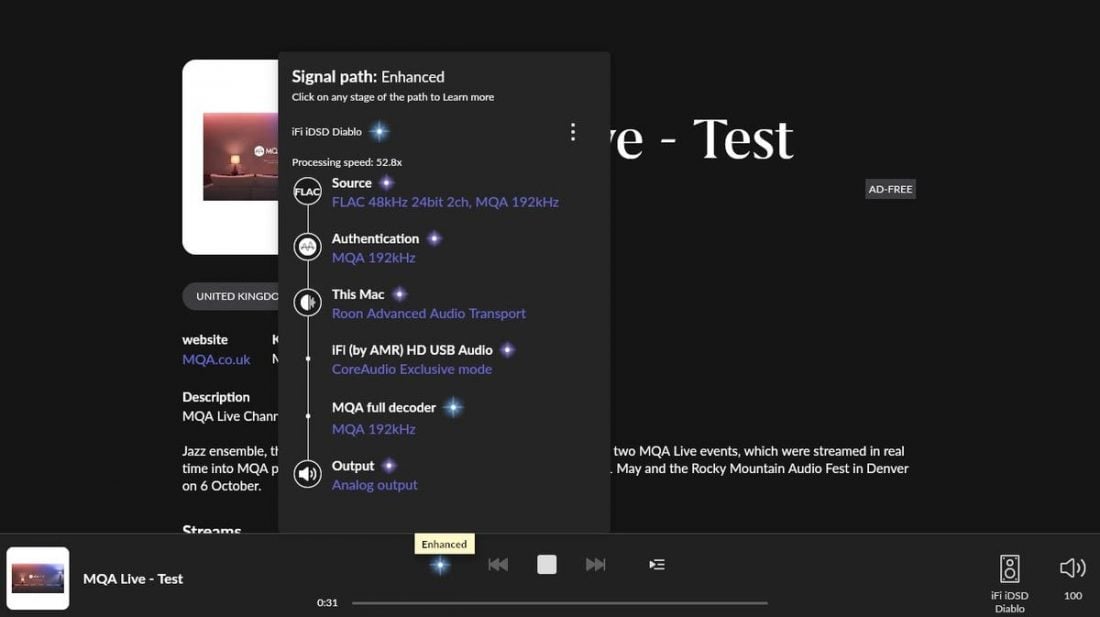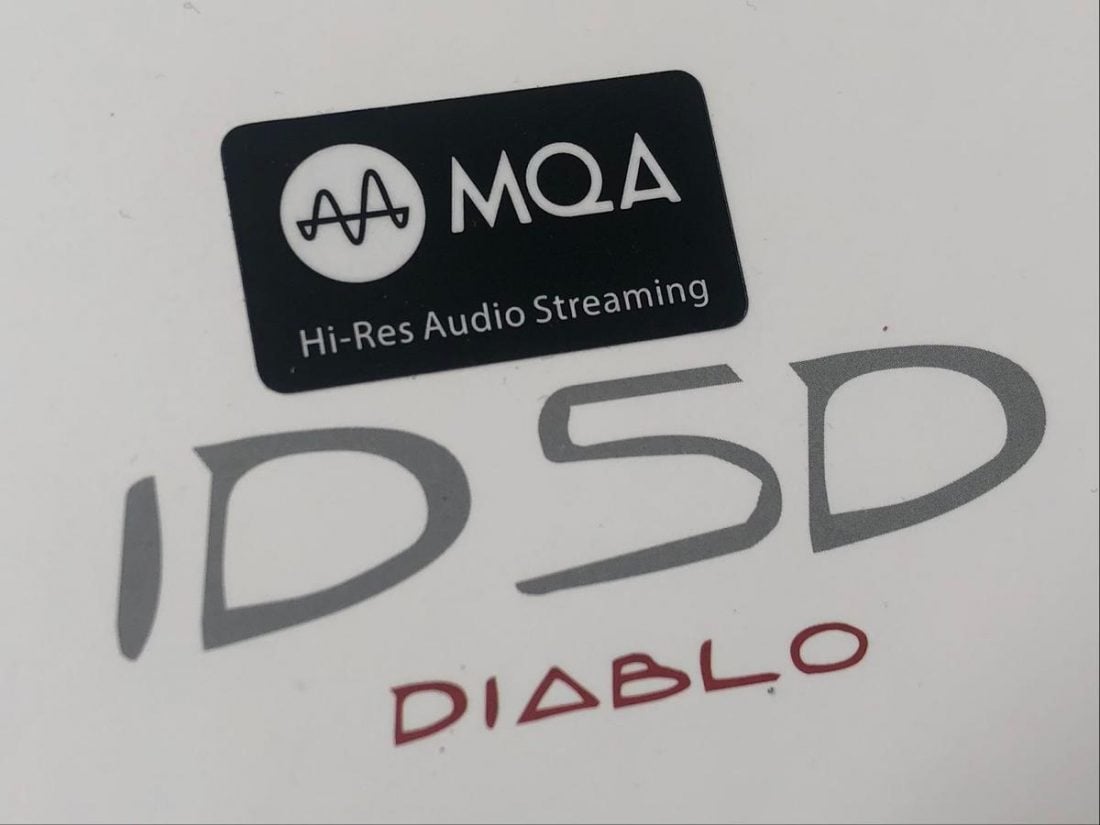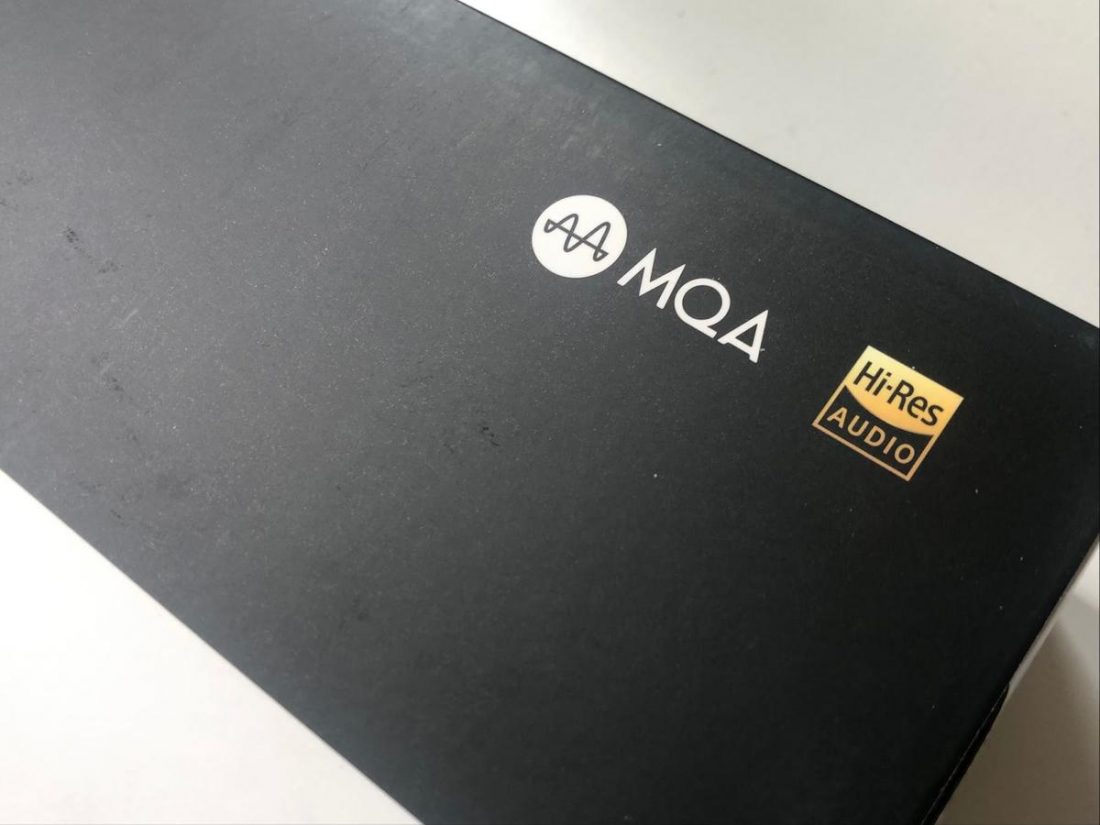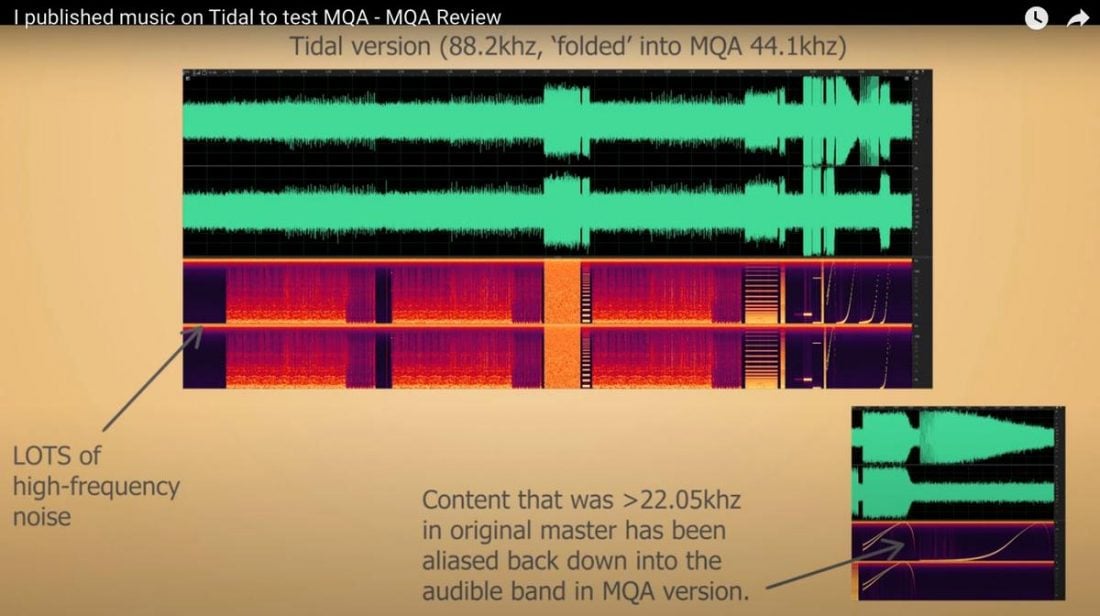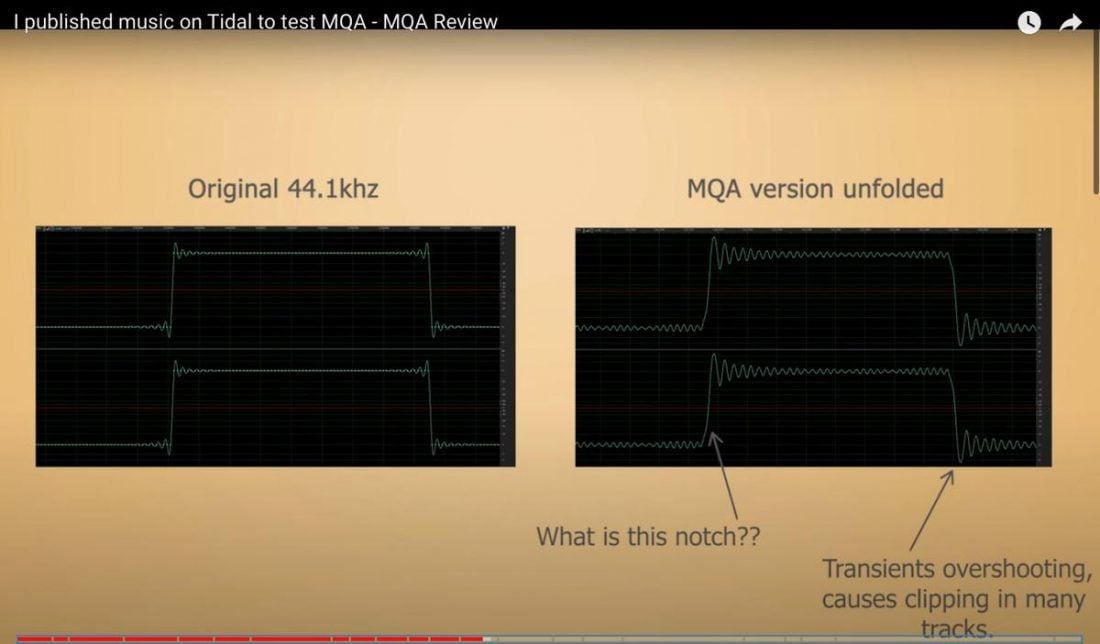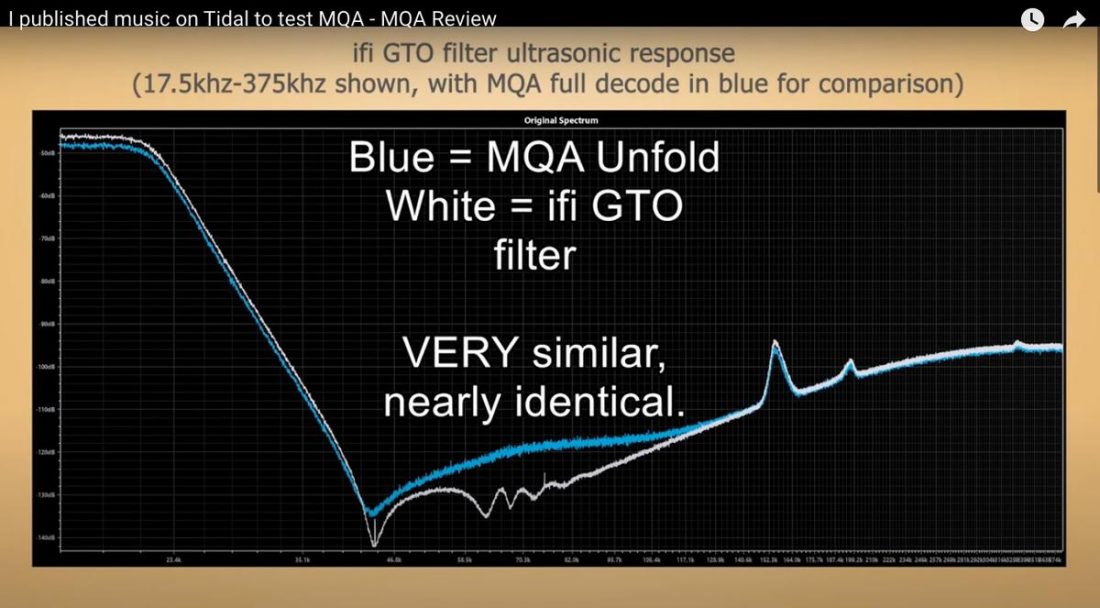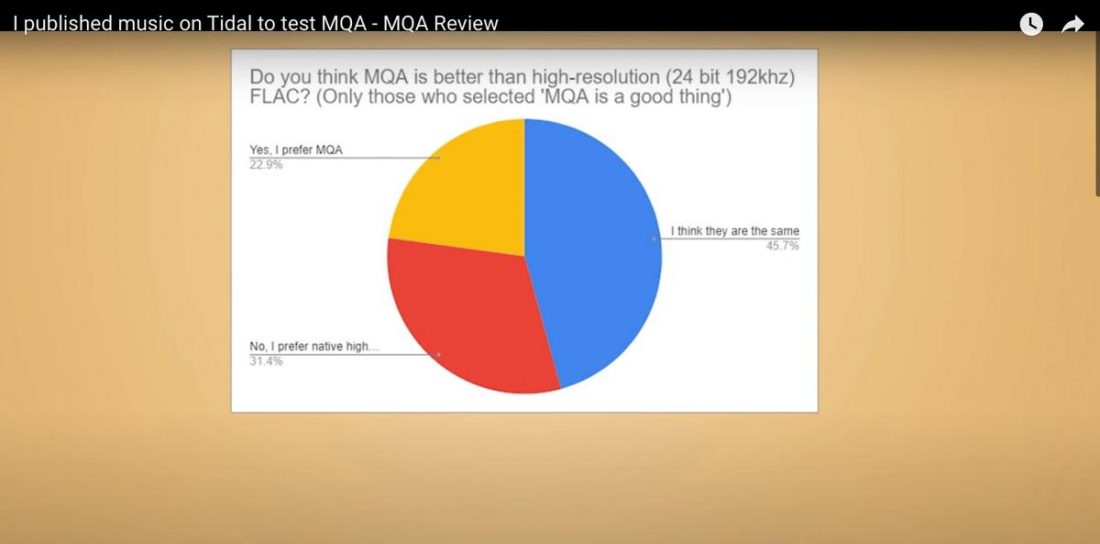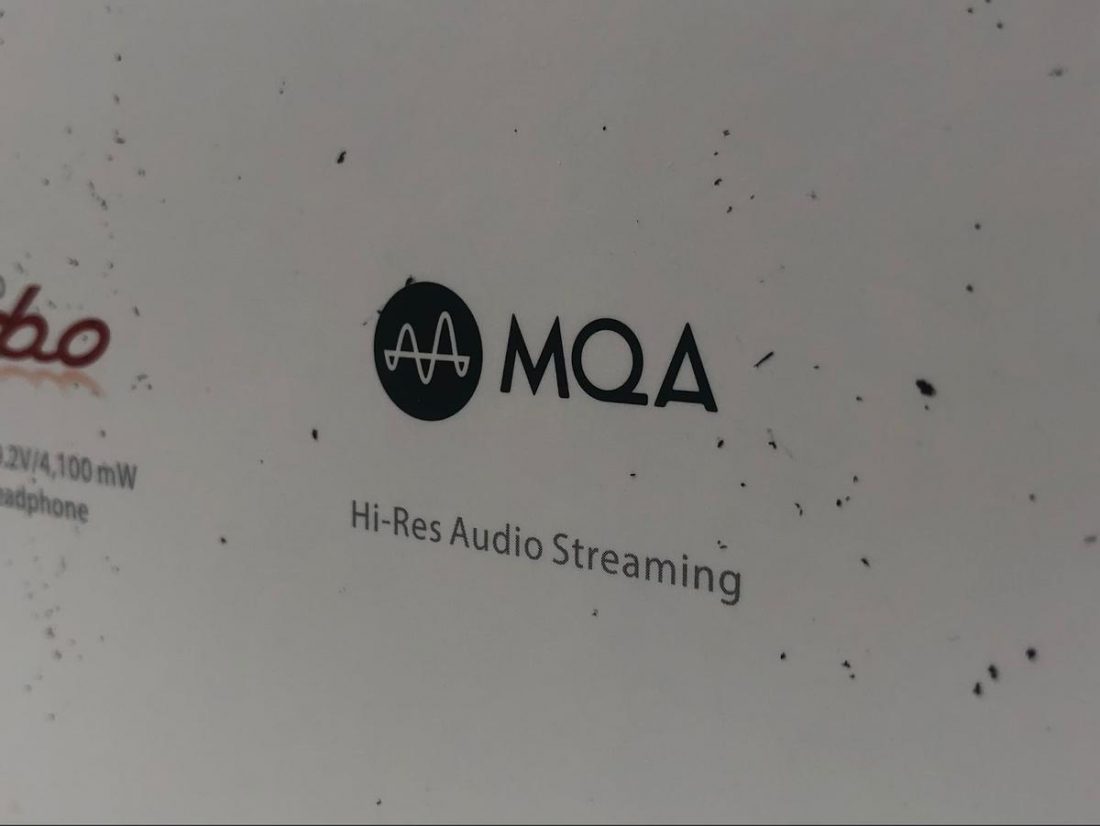A recent video published (on April 15, 2021) by GoldenSound has once again stirred up the MQA pot. In the last couple of weeks, the video made the rounds (again, and again) through most audiophile groups, and, as of writing, has racked up about 150,000 views. Additionally TIDAL (the main distributor of MQA) has announced a new tiered price plan in Australia that is expected to roll out worldwide. The audio hobbyist communities are in a buzz. If you are an audio enthusiast, you are undoubtedly at least peripherally aware of MQA, but unless you’ve taken a deep dive, you may be wondering what all the fuss is about. Master Quality Authenticated (MQA) was publicly launched in 2015 and has been caught up in controversy since its inception. MQA is the creation of Meridian Audio (and now MQA Ltd.) company founder Bob Stuart and long-term collaborator Peter Craven. MQA is a new approach to high-resolution digital audio encoding and reproduction, focusing on the time domain, rather than the more common strategy of increasing bit depth and sample rate. MQA involves using a proprietary lossy compression technique to ‘fold’ (their term) an audio file into a lossless (FLAC) container, primarily intended to reduce its size for streaming. MQA certified hardware or software is required on the end user’s side to ‘unfold’ the file for playback. Unsurprisingly, a big part of the controversy comes from the use of a lossy format to deliver the claimed highest-fidelity audio experience. This stands in stark contrast to the near-ubiquitous ‘lossless is best’ philosophy in audio. From the consumer’s point of view, what is most obviously important? Simply, does MQA deliver the highest possible sound quality? Seems easy enough. Shouldn’t that at least be clear? I’m afraid not.
What Is MQA?
To understand the controversy around MQA, we need to have a basic understanding of what Master Quality Authenticated is all about. A ton has been written on the subject, and if anything is consistent between it all, it’s that the MQA process isn’t easy to describe or understand. Unfortunately, the MQA corporation itself hasn’t made it any easier for consumers. Their documentation uses proprietary terms, jargon, and unmeasurable claims. And if there’s something that gets the audiophile community riled up, it’s when they think there is a whiff of ‘snake oil’ in the air. Pulling a fast one, eh? Sadly, the lack of transparency does MQA a disservice. It’s entirely possible it delivers on all its promises, but they don’t clearly explain how they achieve it.
What Does MQA Do to Music?
MQA takes original high-resolution studio recordings and ‘folds’ (compresses) them through a multi-step process and stores them in a 44.1kHz or 48kHz container file. The sample rate of the original file determines the resulting sample rate of the container file. The MQA encapsulation procedure takes the original hi-res content and, through their proprietary encoding process, compresses and stores the high-frequency bands as data, and embeds it into the lower frequency bands.
The MQA encode process
MQA Encoding Process: Original file → Folding Steps → MQA container file 2-Step Encoding: Original file = 192kHz → 96kHz → 48kHz = MQA container file 3-Step Encoding: Original file = 352.6kHz → 176.4kHz → 88.2kHz → 44.1kHz = MQA container file
Now the standard 20Hz-20kHz audio portion can be played back on any DAC or the additional information (ultrasonic content) can be unfolded by an MQA certified device and added back into the file for high-resolution playback.
The 3-step MQA decode process – music origami
Science, Neuroscience, or Psuedo-Science? Time-Domain-Focused Filtering
MQA is based on Bob Stuart’s background in Psychoacoustics as well as Electronic Engineering. He claims that by combining “key insights from modern auditory science” and sampling theory, MQA better converts music into digital files (and back to analog for playback). By using the minimal amount of necessary digital data, MQA focuses on the time-domain performance of anti-alias and reconstruction filters in DACs, rather than on file size and sampling rate to capture audio. They claim that all the original sound (with at least 15x higher resolution than regular PCM) can be packaged in a smaller format (up to 80% savings) for more efficient distribution.
MQA Promises
Far smaller file sizes, with better than original sound quality. MQA encoded files will play back on any device to deliver higher than CD quality. That’s a big part of the MQA promise. Scientific objectivists and audio subjectivists are often at odds within the audio hobby. MQA is an ideal new topic to further widen the divide. MQA dismisses any lossy codec concerns because “MQA is a philosophy more than it is ‘just a codec.’” The sound quality of MQA cannot be compared to other formats, because of their insights gained from human neuroscience, and the importance of their time-domain-focused filtering techniques. Traditional quality evaluation methods simply do not apply. MQA further claims to ‘de-blur’ the music and maximize dynamic range clarity through their end-to-end process, which is said to reduce modulation noise errors. Terms like ‘folding’ and ‘de-blurring’ are technical jargon, and concepts like applied-neuroscience, and a time-domain-focused approach to filter design are nigh-on impossible to prove. And when folks such as GoldenSound attempt to scientifically measure to illustrate issues, MQA can always point to their statements that current measurement protocols do not apply. For many, MQA has delivered on its promises of superior sound quality. Since its launch, MQA has had no shortage of enthusiastic fans who hear improvements in the music they love after it’s received the MQA treatment.
Critical Responses
After such a glowing review above (circa 2016), the ongoing debate and time seem to have tempered John Darko’s feelings regarding MQA. Referencing the GoldenSound video, he recently (April 30, 2021) summarized his current concerns with MQA. An MQA file and its hi-res cousin would sound (close to) identical. But do they? No, they do not. And from an audiophile perspective, the audible differences aren’t subtle… more musically convincing than its hi-res counterpart… The MQA version delivers fuller, more tonally satisfying bass notes and a better sense of the space… MQA seems to do a better job of making the three dimensional illusion that is high end audio playback more believable… In more general terms, and depending on the musical content, MQA draws player outlines with greater clarity and fleshier tonality. More easily ‘seen’ is each player’s soundstage positioning. Decay, from percussive ticks to guitar licks, becomes more obvious too…” – John Darko – An Inconvenient Truth: MQA Sounds Better – June 1, 2016
Concerns Raised by the GoldenSound Video
The GoldenSound video is entitled “I published music on TIDAL to test MQA – MQA Review.” It documents an attempt to circumvent the current MQA testing limitations. GoldenSound pulled no punches and boldly stated that they are “providing evidence that MQA’s claims are not true”. The main concerns in the video may be summarized as: MQA claims that it “unlocks every detail of the original master recording” and “wherever audio exists, MQA ensures it’s the best it can possibly be.” However, based on the results demonstrated in the video, these claims are shown to be false. As discussed, if there is ultrasonic content present in the original master, the MQA encoding process aliases this content down below the noise floor. However, GoldenSound demonstrated that unwanted noise penetrated into the audible band. The high-frequency information is added back to the file, but imperfectly, and with audible distortion, artifacts, and limited dynamic range. It does not maintain 100% of the original recording, regardless of the sample rate of the original file. Beyond the MQA encoding process adding unwanted noise to the file, the MQA playback filter has poor attenuation. Critics describe it as a ‘leaky’ filter. From the video, persistent high frequency noise may be seen in the audible band, the square wave has excessive overshoot, non-linear ringing, and the transitions are notched. The MQA minimum phase filter design creates phase anomalies, especially with higher frequencies, and introduces temporal distortion and noise. Critics state that the MQA filter is almost certainly sonically inferior to standard playback filters for playing back standard PCM files. As such it is undesirable as the only filter option in a DAC.
MQA Resolution
Most MQA releases on TIDAL are from a 44.1kHz master and not a high-resolution file. TIDAL does not indicate the sample rate of the original file (but Roon does within the track description). The MQA indicator is the same whether the original file is high-resolution or if it is just an upsampled 44.1kHz standard resolution file. By not clearly displaying the original sample rate, this misleads consumers into believing all MQA releases are the same or better than 24bit/192kHz. Artists such as Neil Young have publicly denounced MQA’s conversion of his music and he pulled his catalog from the service after they converted his standard resolution files to MQA.
MQA Assurance Indicator
MQA claims that the “studio” indicator (MQA blue light) gives confirmation directly from the mastering engineers, producers, or artists to their listeners that the sound they are hearing is exactly as originally intended and recorded. However, the video notes that without proper indication and notification, the end-user can not trust the quality of the file they are receiving. Other testers have removed up to 30% of the file data and the blue light still functions. MQA’s response is that “…the onus is on the submitter to check the content when it arrives in TIDAL and confirm the sound.”
Lack of Transparency
Another concern raised in the video is MQA’s lack of transparency and aversion to third-party testing. Examples such as Chord Electronics and DSD provide measurements and evidence to the consumer to make informed decisions. Unfortunately with MQA, no end-to-end evaluation tools are available. Rather they actively discourage testing. End users can not encode files in MQA (they must be uploaded to TIDAL) or record the final output of a Full Decoder device. Testers have to find ways around the roadblocks (as the GoldenSound video attempted to do).
Control of the Audio Market
It’s important to note that the MQA format is proprietary and that the MQA company stands to benefit the most if the format catches on and replaces other high-resolution audio options. The danger is clear if MQA eliminates other hi-res formats and the audio quality concerns are valid. Less choice, and the resultant monopolies, seldom benefit the consumer. MQA’s marketing has been very successful; consumer brand recognition and demand are very high. Regardless of their personal feelings on the subject, hardware manufacturers must decide if they want to implement MQA into their products (and pay the licensing costs), or potentially lose sales. It’s a simple business decision, without MQA certification, they stand to lose customers and sales. Companies such as PS Audio, Linn Products, and Schiit Audio have taken vocal stances against MQA due to the licensing requirements, although PS Audio does offer MQA certified devices.
Conclusion
With all this uncertainty, it’s no wonder that MQA is a controversial topic.
MQA is a company that stands to gain financially by their proprietary format increasing in popularity MQA is a new approach to digital audio file compression designed to reduce the file size for streaming and distribution MQA claims to offer the highest available sound quality and to authenticate the quality and end-to-end delivery process MQA claims their neuroscience-based, time-focused filter techniques can not be measured by current methodologies MQA actively discourages measurement or comparison of their format Critics have attempted to measure MQA and have noted audible quality degradation in contrast to MQA’s claims of ‘nothing is lost from the original’ Critics note that the MQA blue light authentication does not guarantee the integrity of the audio file The original file format is not clearly displayed during playback and implies a high-resolution source regardless of the original sample rate Critics claim that the MQA (and similar iFi GTO) filter are leaky and offer worse performance for standard PCM playback If MQA becomes the dominant hi-res audio format, not only may it be sonically compromised, it is not open-source, thus requiring hardware and licensing fees, and has DRM like controls built-in
I’m typically a live-and-let-live kind of guy. Do you want to listen to low-bitrate mp3s on components connected only with rhodium cables? Fill your boots. It’s all about enjoying the music. I’m usually a firm believer that all that’s important is that it sounds good to you. Why should anyone care if other folks like the sound of MQA? “Mind your own business,” as many a mom would say. The MQA debate isn’t quite that simple. If you are to believe the doomsayers, MQA threatens to change the future of high-resolution audio. What happens if the industry significantly moves away from the relative purity offered by the open-source FLAC format, and embraces MQA as a replacement? Could studios forsake mastering in hi-res and MQA become the de facto standard? In truth, this is likely just the worst-case theory of a small but vocal group of detractors. Yet, should MQA establish dominance over the hi-res audio market, it likely isn’t a good thing for consumers. Firstly, MQA is a single company’s intellectual property, and not free for use. Secondly, it really might not sound as good as what we’ve currently got. Consumers stand to lose freedom of choice, gain hardware purchase requirements, and no longer have access to original hi-res audio files. On the other hand, MQA supporters fervently maintain that MQA delivers on its promises. They affirm that the measurements do not tell the whole story. To their ears, the sonic improvements go far beyond what the numbers imply. Who’s right? Is MQA the next great advancement in high-resolution audio, or is it merely smoke-and-mirrors marketing for one company’s proprietary take on compressed music distribution? Both sides of the argument are prone to going too far. Like most things, after we look closely at both sides of an issue, the truth usually lies somewhere in between the extremes. You need to make your own mind up regarding MQA, but as a fellow music lover, you likely shouldn’t ignore it.


